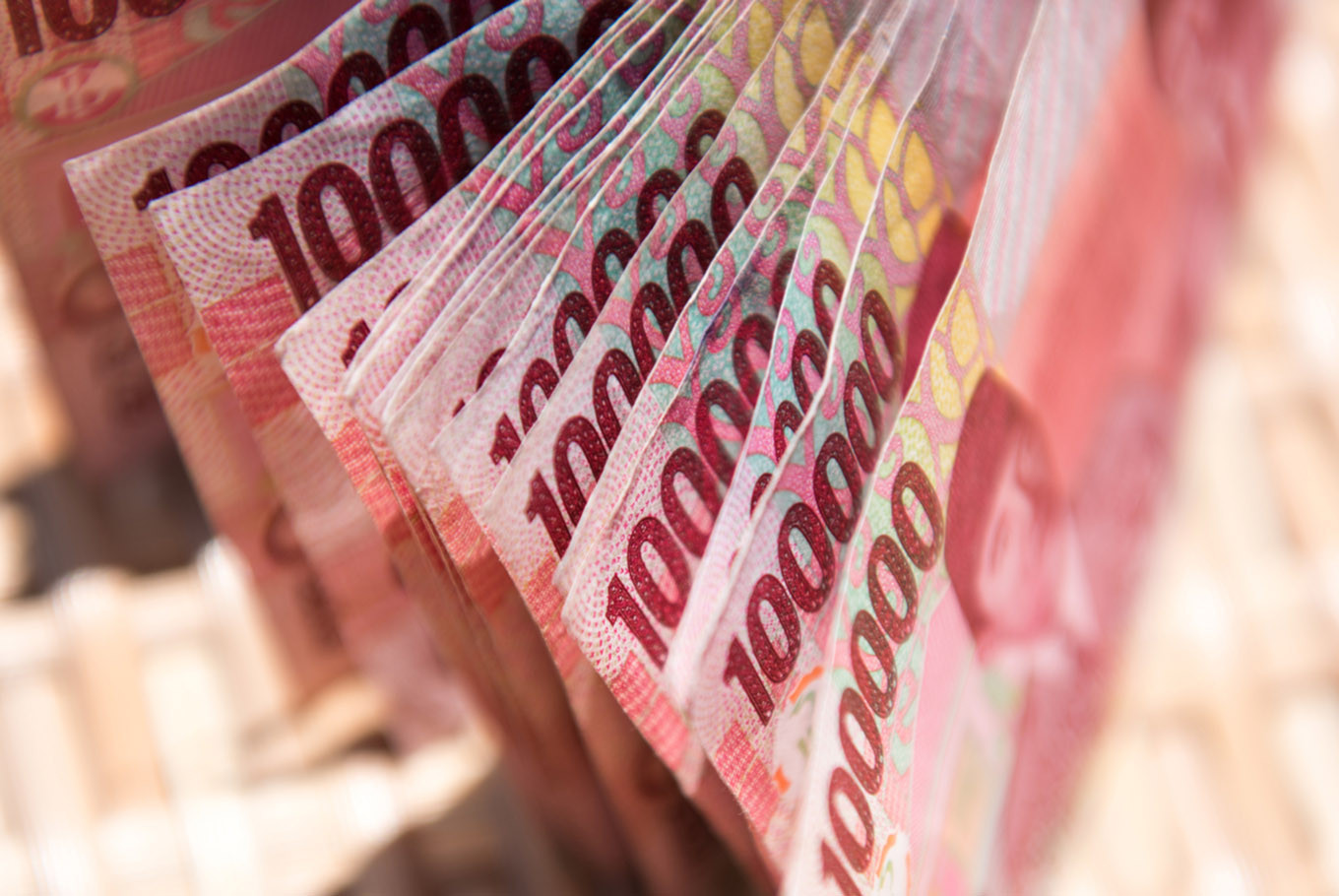Popular Reads
Top Results
Can't find what you're looking for?
View all search resultsPopular Reads
Top Results
Can't find what you're looking for?
View all search resultsState firm dividends rise as govt scrambles to rescue economy
Change text size
Gift Premium Articles
to Anyone
T
he government has collected more than Rp 40 trillion (US$2.82 billion) in dividends from five major state-owned enterprises (SOEs) alone this year, while concurrently throwing a lifeline to ailing SOEs in a bailout program worth more than Rp 150 trillion.
Some of the biggest SOE payouts to the government this year were from Bank Rakyat Indonesia (BRI), Bank Mandiri, oil and gas giant Pertamina, telecommunications powerhouse PT Telekomunikasi Indonesia (Telkomsel) and Bank Nasional Indonesia (BNI).
The five state firms paid out Rp 40.36 trillion in dividends to the government, representing a 16.72 percent year-on-year (yoy) increase from last year’s dividends of of Rp 34.58 trillion.
As of March 31, the payout had boosted state revenue by 7.7 percent to Rp 375.9 trillion, said Finance Minister Sri Mulyani Indrawati during a livestreamed press conference on the state budget on April 17.
“It is to be noted, however, that this did not come from economic activity. This is because there has been a shift in dividend payouts from our SOEs that is reflected in the surge of non-tax revenue (PNBP),” the minister said. This year, several SOEs disbursed their dividends sooner than usual.
According to data provided by the Finance Ministry, the state had collected Rp 96 trillion in non-tax revenue as of March 31, 26.2 percent of the 2020 target of Rp 367 trillion.
SOE revenue, which forms part of the state budget’s non-tax revenue, is targeted at Rp 49 trillion this year, down from 2019’s outlook of Rp 79.7 trillion but higher than 2018’s realized figure of Rp 45.1 trillion.
A big chunk of that revenue came from the big three banks: BRI, Bank Mandiri and BNI. These three banks alone contributed almost half of the country’s target.
This year, BRI distributed Rp 20.6 trillion in dividends to its shareholders, Rp 11.76 trillion of which has gone to the government, which owns 56.75 percent of the bank. Bank Mandiri paid Rp 9.89 trillion, while BNI paid Rp 2.31 trillion. The government owns 60 percent of both banks.
State-owned banks have consistently been the most profitable state-owned companies in the country. BRI, BNI and Mandiri recorded a total net profit of Rp 66.93 trillion in 2018, more than half of the total net profit from the 113 SOEs at Rp 127.51 trillion, SOE Ministry data shows.
Unsatisfactory performance at some SOEs has become a major concern for the government. SOEs Minister Erick Thohir has vowed to transform the companies under his control and make them leaner to increase efficiency. Earlier this year, the government announced it would be working with consultancy firm McKinsey & Co. and the Boston Consulting Group to revamp the SOEs.
That agenda faced a roadblock when the COVID-19 pandemic hit the country, forcing the government to prioritize survivability above profitability. Under Government Regulation No. 23/3030 on the national economic recovery program, the government has allocated more than Rp 152 trillion to bail out SOEs through state capital injections (PMN), among other mechanisms.
The funds will be channeled to flag carrier Garuda, steelmaker PT Krakatau Steel and State Logistics Agency (Bulog), which are expected to receive Rp 8.5 trillion, Rp 3 trillion and Rp 13 trillion, respectively, in working capital investment.
Pertamina may receive Rp 48.25 trillion and electricity firm PLN Rp 45.42 trillion in the form of accelerated compensation payments, according to Finance Ministry presentation material obtained by The Jakarta Post in May.
Bailing out state firms is increasingly being seen as necessary to counteract the effects the pandemic. Even developed countries such as those of the European Union, which would normally ban such aid in the name of meritocracy and preventing moral hazard, have warmed up to the idea. Many consider the lifeline necessary to prevent a greater decline if cash-strapped SOEs were forced to lay off workers en masse.
Garuda Indonesia laid off 180 contract pilots and hundreds of workers after revenue nosedived earlier this year as a result of travel restrictions and people’s general reluctance to travel during the pandemic.
As of March 31, the airline had booked a net loss of $120.16 million, down from a $20.48 million net profit during the same period last year.
Garuda Indonesia president director Irfan Setiaputra said the airline industry was innately a “very tough” industry with small margins, high costs and tight competition, where prices could not be assigned arbitrarily.
“We are talking about a single-digit margin. So when a disruption happens, the implication to our bottom line, cash-wise, is immediate [and] drastic,” Irfan said.
“The past month, the past three weeks, there have been gains, but they are still far from pre-COVID-19 levels,” he added. Based on the consensus of analysts, Irfan said, recovery to pre-COVID-19 levels would occur only by the end of 2022.










